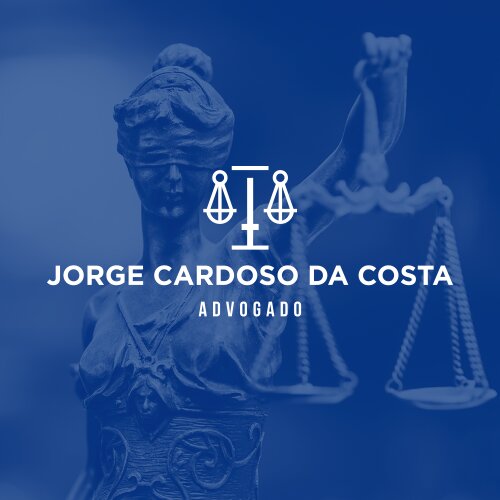Best Bankruptcy & Debt Lawyers in Vila Nova de Gaia
Share your needs with us, get contacted by law firms.
Free. Takes 2 min.
List of the best lawyers in Vila Nova de Gaia, Portugal
About Bankruptcy & Debt Law in Vila Nova de Gaia, Portugal
Bankruptcy and debt law in Vila Nova de Gaia operates under the framework of Portuguese law, specifically regulated by the Código da Insolvência e da Recuperação de Empresas (CIRE) or the Insolvency and Corporate Recovery Code. These laws offer legal routes for both individuals and companies facing financial difficulties, enabling debt restructuring, payment agreements, or, in more severe cases, formal insolvency proceedings. Vila Nova de Gaia, being a major municipality near Porto, follows national regulations, but local courts and legal practitioners can provide specialized advice tailored to the region's economic and social conditions.
Why You May Need a Lawyer
Dealing with significant debt or potential bankruptcy can be overwhelming. Legal advice can help clarify your rights and obligations, protecting you from potential pitfalls. Here are common situations where seeking legal help is essential:
- You are struggling to pay your debts and are contacted by creditors or collection agencies.
- You are running a business facing financial trouble, risking closure or liquidation.
- You want to understand the potential impact of bankruptcy on your assets, employment, or credit rating.
- You are considering negotiating with creditors for payment plans or settlements.
- You have received notifications regarding judicial proceedings for debt recovery, such as wage garnishment or property seizure.
- You need guidance on formal insolvency applications and related documentation.
Local Laws Overview
In Vila Nova de Gaia, as in the rest of Portugal, the main legal instruments relating to bankruptcy and debt include the CIRE and associated regulations. Here are key aspects:
- Insolvency Proceedings - Both individuals and companies can file for insolvency when unable to meet their financial obligations as they become due.
- Debt Restructuring - The law allows preventive agreements with creditors (Processos Especiais de Revitalização - PER) to avoid bankruptcy via negotiated settlements.
- Asset Protection - Certain assets may be protected from seizure depending on the individual’s circumstances and the type of debt.
- Judicial Liquidation - Upon insolvency declaration, a court-appointed administrator may sell assets to repay creditors according to legal priorities.
- Fresh Start Rules - Under certain conditions, individuals can be released from part of their debts after insolvency proceedings, enabling a fresh financial start.
- Local Courts - Bankruptcy and debt matters are usually handled by the local Tribunal Judicial (Judicial Court) in Vila Nova de Gaia.
Frequently Asked Questions
What is the difference between insolvency and bankruptcy in Portugal?
In Portuguese law, the term "insolvency" is commonly used for both individuals and businesses unable to pay their debts. "Bankruptcy" is sometimes used in informal contexts but legally falls under the broader concept of insolvency.
Can individuals file for insolvency or is it just for companies?
Both individuals and companies can file for insolvency if they cannot meet their financial commitments. The procedures are similar, though specific rules may apply depending on the applicant’s status.
What happens to my assets during insolvency proceedings?
When insolvency is declared, most of your assets may be collected and sold to repay creditors. However, some essential items may be protected by law from seizure.
How long does the insolvency process typically take in Vila Nova de Gaia?
The length of insolvency proceedings varies depending on case complexity but may range from several months to a few years for more complicated cases.
Will insolvency affect my employment?
Insolvency proceedings do not automatically affect your employment, though certain professions may have restrictions. Your employer is not typically notified unless wage garnishment is ordered.
What is the Processos Especiais de Revitalização (PER)?
The PER is a special process allowing distressed debtors to negotiate with creditors to restructure debt and avoid formal insolvency. It requires court intervention and approval.
Can I keep my primary residence during insolvency?
In most cases, your primary residence can be at risk of seizure if it is a significant asset, depending on the nature and amount of your debts. Legal advice is recommended to assess your situation.
Are there alternatives to declaring insolvency?
Yes, alternatives include negotiated settlements with creditors or entering into a PER, which may help restructure or reduce debts and avoid insolvency.
Do I need a lawyer to file for insolvency?
While it is possible to start the proceedings independently, legal representation is strongly advised to ensure your rights are protected and to navigate complex legal requirements.
How will insolvency affect my credit record?
Insolvency will have a significant impact on your credit record, making it difficult to obtain loans or credit facilities for several years after the process is completed.
Additional Resources
For those seeking assistance or more information about bankruptcy and debt in Vila Nova de Gaia, consider the following resources:
- Tribunal Judicial da Comarca de Vila Nova de Gaia - Local judicial court handling bankruptcy and debt disputes
- Ordem dos Advogados (Portuguese Bar Association) - Provides lists of qualified lawyers specializing in debt and insolvency law
- Centro de Arbitragem de Conflitos de Consumo do Porto - Local consumer conflict arbitration services
- Gabinete de Proteção Financeira (DECO) - Offers support and advice for individuals facing financial difficulties
- Banco de Portugal - Provides information about credit responsibilities and blacklisting implications
Next Steps
If you are struggling with debt or considering bankruptcy in Vila Nova de Gaia, here is how you can proceed:
- Assess your financial situation thoroughly and gather documentation related to your debts and assets.
- Consult with a qualified local lawyer specializing in insolvency and debt law for advice tailored to your circumstances.
- Explore alternatives such as payment plans or debt restructuring before deciding on insolvency.
- If legal action is initiated by creditors, respond promptly and seek immediate legal support to protect your interests.
- Keep communication lines open with creditors and participate in court-mandated processes as required.
Every situation is unique, and having expert legal guidance is crucial to achieving the best possible outcome. Early intervention can offer more options and help you regain financial control.
Lawzana helps you find the best lawyers and law firms in Vila Nova de Gaia through a curated and pre-screened list of qualified legal professionals. Our platform offers rankings and detailed profiles of attorneys and law firms, allowing you to compare based on practice areas, including Bankruptcy & Debt, experience, and client feedback.
Each profile includes a description of the firm's areas of practice, client reviews, team members and partners, year of establishment, spoken languages, office locations, contact information, social media presence, and any published articles or resources. Most firms on our platform speak English and are experienced in both local and international legal matters.
Get a quote from top-rated law firms in Vila Nova de Gaia, Portugal — quickly, securely, and without unnecessary hassle.
Disclaimer:
The information provided on this page is for general informational purposes only and does not constitute legal advice. While we strive to ensure the accuracy and relevance of the content, legal information may change over time, and interpretations of the law can vary. You should always consult with a qualified legal professional for advice specific to your situation.
We disclaim all liability for actions taken or not taken based on the content of this page. If you believe any information is incorrect or outdated, please contact us, and we will review and update it where appropriate.
Browse bankruptcy & debt law firms by service in Vila Nova de Gaia, Portugal
Vila Nova de Gaia, Portugal Attorneys in related practice areas.









